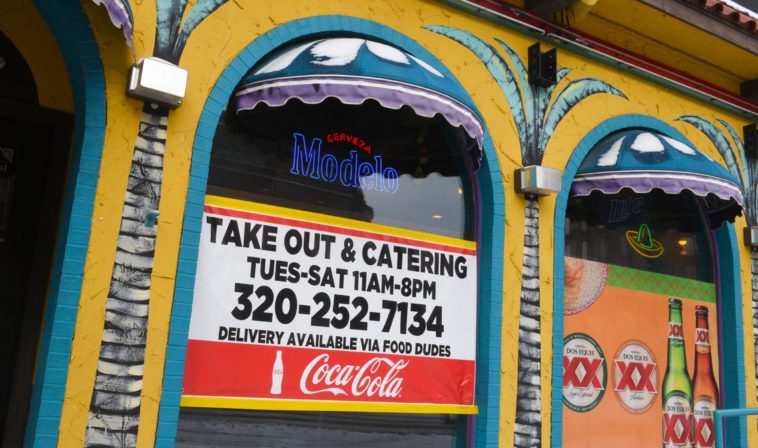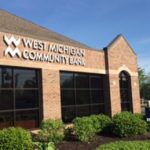St. Cloud food, beverage taxes down 19%, hotel taxes down 50% from last year – SC Times

| St. Cloud Times
ST. CLOUD — As COVID-19 spread through the St. Cloud community this year, fewer people attended schools, booked hotel rooms or visited local restaurants.
As a result, the city’s sales tax ledgers are down more than $1 million as of the end of October.
The food and beverage tax — which applies to takeout, prepared deli items, and fare from bars and restaurants — is down 19% from last year, from about $1.34 million in October 2019 to $1.09 million this year.
St. Cloud Finance Director Ruth Wipper anticipates the tax could be down close to nearly 23% when November and December taxes are included.
“The normal logic to do projections doesn’t quite apply this year,” Wipper said. “I would expect we would see it lower than the October collections simply because of the indoor dining ban and the fact that outdoor dining isn’t very viable right now, whereas sometimes there’s a lag in collections.
“So what we received in October probably still contained some outdoor dining, along with the allowed indoor dining,” she continued.
The last two months of the year are usually good for indoor restaurants because people celebrate holiday parties or make a pit stop while out shopping. This year, regulations to limit the spread of COVID-19 prohibited indoor dining and large gatherings.
The nearly 20% decrease in city taxes is a direct reflection of how St. Cloud bars and restaurants are faring. Collectively, sales at dining establishments and places with prepared food are down about 1/5 from last year.
MORE: The restaurants the St. Cloud metro lost and gained in 2020
“It could vary by individual business, certainly,” Wipper said. “That would equate to the sales being down but not necessarily true for each individual business. I think some are up and some are down.”
The anticipated annual drop in sales taxes is particularly significant because it will likely be three or four times what the decline was during the Great Recession; the city saw a 6% decrease in food and beverage taxes in 2008.
“This is a very different economic situation than the Great Recession,” Wipper said. “A recession is kind of more of a slow decline for a lot of governmental revenues. This was — bam — doors shut. And that’s very different.”
Pandemic restrictions also canceled weddings, conferences and athletic tournaments so the city’s hotel/motel tax also saw a hit of about 50% from last year as of the end of October.
In 2019, the city had earned about $1.4 million in hotel/motel taxes by the end of October; this year, the city has earned about $678,000.
The city uses food and beverage taxes to pay for debt service on projects at River’s Edge Convention Center and other city-owned facilities such as the Paramount and Municipal Athletic Complex.
Story continues below
The hotel/motel taxes are used for operations at the convention center and convention and visitor’s bureau, with a small amount going to the MAC and city-owned gardens. Because of the revenue decline, the city is not funding the convention coordinator and facilities director positions in 2021.
The city has also seen declines in fees from water and electrical usage during the pandemic.
“Those have kind of bounced around,” Wipper said. “In the beginning of the pandemic, they were down. Then it was a nice, dry spring and everybody was at home watering their lawns so water sales were pretty strong. But the last time we talked about it, the public utilities director said we are down about a million gallons a day in water sales as you look at schools, hotels, campus — lots of big water users — closed.”
Revenue from the city’s parking system is also down $1 million from last year.
One bright spot is the city’s half-percent local option sales tax, which funds regional projects.
“Year-to-date we were down only about 2.5% compared to the previous year,” Wipper said. “But we had a very strong November/December last year and I don’t think we will have as strong (of a November/December) this year. I’m thinking we’re going to end up being down about 5% on local area sales tax.”
Pandemic restrictions do not impact this tax as much, given the 2018 Supreme Court ruling South Dakota v. Wayfair, which found states can charge tax on purchases made from out-of-state sellers.
“All internet sales are subject to local area sales tax, so anything anyone is buying online is now subject to the area sales tax,” Wipper said. “That has helped lessen the impact of some of the stores being closed.”
The pandemic caused an $8.5 million shortfall in the 2020 budget — and officials built the anticipated shortfall into the 2021 budget, which is 2% less than the 2020 budget.
“We have anticipated what we hope is a worst case scenario — but who knows these days,” Wipper said. “We tried to budget for a worst case scenario and hope that we’re wrong.”
City officials anticipate the first half of 2021 looking similar to the end of 2020 in terms of sales tax revenue, given the lag before a majority of people are vaccinated and people can begin eating and drinking outside again.
“That’s a long way off,” Wipper said. “It’s really easy to add things back into a budget but it’s much harder in June and cut something else out of it.
“So we tried to come in super conservative on our estimate. If we’re lucky, we’ll be wrong and be able to put some things back in or put some more in the reserves as the year goes on.”
Jenny Berg is the cities and schools reporter for the St. Cloud Times. Reach her at 320-259-3680 or jberg@stcloudtimes.com. Follow her on Twitter @bergjenny.
Support local journalism. Subscribe to sctimes.com today.
Published at Wed, 30 Dec 2020 19:44:49 +0000






Comments
Loading…